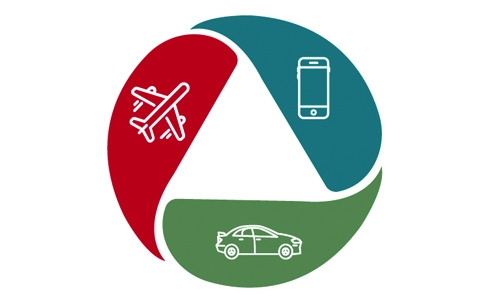No drugs in sight to fix loan addiction
Manama : Bahrainis’ addiction to personal loans has set alarm bells ringing with economic experts warning of dire consequences. According to data revealed by the Central Bank of Bahrain, the citizens borrow BD 1.66 million on an average daily basis. In 2017 alone, BD 606m was borrowed in personal loans. Perhaps, a more worrying fact according to experts is that these loans are being channelled to satisfy luxurious ambitions in the form of cars, gadgets and summer vacations abroad. Last summer saw a whopping BD185m in personal borrowings and experts say vacations abroad would have eaten the lion’s share.
By February this year, the total value of personal loans obtained by citizens stood at BD 8.9 billion. If this loan burden is passed on to all citizens, each Bahraini would have a debt of BD13,700.
Experts say the addiction is severe. “Each Bahraini seems to have at least four loans with these bucks being spent on cars, mobile phones, furnishing homes and travelling abroad – all of which come under the luxury list.” Economist Youssef Al Mishal says this dangerous loan habit can’t be brushed aside.
“As interest accumulates a customer would at times become liable to pay BD3,000 for a BD300 worth mobile phone.” Mr Al Mishal also finds it hard to digest Bahrainis’ habit of knocking bank doors for travelling abroad. “This is a terrible attitude where we see the personal financial responsibility missing among the citizens.”
According to economic analyst Jassim Hussein, a more worsening act is the incorrect interest rates revealed by commercial banks. “Five to six per cent mentioned in papers is totally incorrect. The interest could go up to 33 per cent and this is the reasons why most recipients end up disagreeing with banks over pending amounts.”
“For a BD2,000 personal loan, the bank earns up to BD500 under different names such as Murabaha, interest or administrative fees. The borrower is asked to pay 25pc of the principle in reality. The only way to fix this is the calculation of total amount to be paid well before obtaining a loan,” the analyst points out. As per reports, the government’s revenues are expected to reach BD 2.3bn in 2018, including oil revenues of about BD 1.8bn. In this backdrop, the government would require three years and 10 months to repay all personal loans obtained by Bahrainis.
Though it’s an economically worrying situation, Mr Hussein says that finding a solution is not that easy. “It’s a personal choice basically. No one can interfere in the personal freedom of citizens, dictating them to not take loans. The Representatives cannot do anything in this regard.” Member of Parliament Mohammed Al Jowder said the Central Bank of Bahrain strictly stipulates monthly payments on loans to 60pc of an individual’s salary.
“Banks are also equally responsible for bad loans. Most often the repayment period is lesser in Bahrain, burdening citizens. For instance, the seven-year repayment period could be raised to 10, which would drastically cut down deduction from salary between 40 and 30 pc. The Central Bank should also monitor the process,” he points out.
Related Posts

